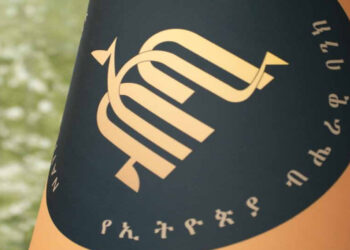Ethiopian Investment Holdings (EIH) has commenced its mid-year performance review of state-owned enterprises (SOEs), with the first day’s dialogues revealing a range of outcomes across diverse sectors. The review, covering the first half of the 2017 Ethiopian Fiscal Year (EFY), highlighted both successes and ongoing challenges, setting the stage for further evaluations in the coming days.
The week-long series of performance dialogues began with a focus on the sugar industry, represented by the Ethiopian Sugar Industry Group (ESIG). ESIG reported selling 64,190 tons of sugar, generating Birr 6.1 billion in revenue. While this represents a commendable 132% year-on-year growth and achieves 95.3% of the planned target, EIH emphasized the need for continued reform and structural changes. The focus remains on enhancing factory capacity, boosting productivity, and ultimately addressing the nation’s persistent sugar supply deficit. EIH specifically directed ESIG to intensify agricultural activities to ensure sufficient sugarcane supply, optimize operations for improved capacity utilization, and prioritize cost optimization strategies. The review acknowledged progress made but underscored the ongoing nature of the challenges facing the sugar industry.
The second review of the day focused on the critical fuel sector, with the Ethiopian Petroleum Supply Enterprise (EPSE) under scrutiny. Despite facing various challenges, EPSE managed to achieve 92% and 97% of its purchase and sales targets, respectively, successfully meeting the nation’s fuel demands. A notable achievement was the recent digitalization of payment and supply systems, which has demonstrably reduced leakage and improved transparency. EIH urged EPSE to expand the adoption of this digital system nationwide and to strengthen its reserves, efficiency, reforms, innovation, and investments, including downstream products. These initiatives are crucial, EIH noted, to ease the foreign currency burden. Furthermore, the review addressed the sensitive topic of subsidies, advising EPSE to monitor them closely and gradually alleviate pressure on the stabilization fund in light of recent macroeconomic changes.
The performance of the Educational Materials Production and Distribution Enterprise (EMPDE) presented a less optimistic picture. EMPDE reported achieving only 38% of its revenue target and a meager 22% of its planned profit for the first half of the fiscal year. EIH expressed serious concerns about the declining volume and sales performance. In a collaborative effort to reverse this trend, EMPDE and EIH agreed to prioritize market assessment and develop acceleration strategies aimed at closing the significant target gap in the remaining two quarters. The success of these strategies will be crucial for EMPDE to achieve its annual targets.
The Ethiopian Trading Businesses Corporation (ETBC) demonstrated stronger performance. ETBC achieved 86% of its trading target by supplying 1.10 million quintals of essential commodities. Moreover, ETBC delivered significant value to Ethiopian consumers, providing Birr 847.2 million in discounts on key goods, including wheat, maize, teff, sugar, edible oil, and fruits. With a reported 99.7% provisional profit before tax (PBT) growth, ETBC garnered praise from EIH. However, the review also included strategic recommendations focused on operational optimization. These recommendations included enhancing asset management through improved warehouse utilization, implementing a methodological pricing strategy, standardizing operational protocols for product handling and storage, and integrating a customer relationship management (CRM) platform, such as Salesforce, to strengthen stakeholder engagement.
The final review of the first day focused on the flagship carrier, Ethiopian Airlines. The airline presented a strong report, registering remarkable growth across key metrics. In the first six months of EFY 2017, the airline saw a 10% increase in total passenger numbers, a 199% surge in total operating profit, and a 211% jump in net profit before tax. Furthermore, Ethiopian Airlines exceeded its cost-saving goals through strategic initiatives, surpassing its target by an impressive 32%. The airline continues to invest in airline and airport infrastructure projects, including the development and expansion of regional airports and, most importantly, the construction of a new mega-hub airport. Looking forward, Ethiopian Airlines reaffirmed its commitment to maintaining its rapid, profitable, and sustainable growth strategy to meet next year’s ambitious targets.
These reviews represent just the first day of the EIH mid-year performance assessment. Over the coming days, EIH will continue its dialogues with other state-owned enterprises, providing a comprehensive overview of the performance of the SOE sector and identifying key areas for improvement and strategic focus. The insights gained from these reviews will be crucial for shaping the future direction of Ethiopia’s state-owned enterprises and their contribution to the nation’s economy.





















